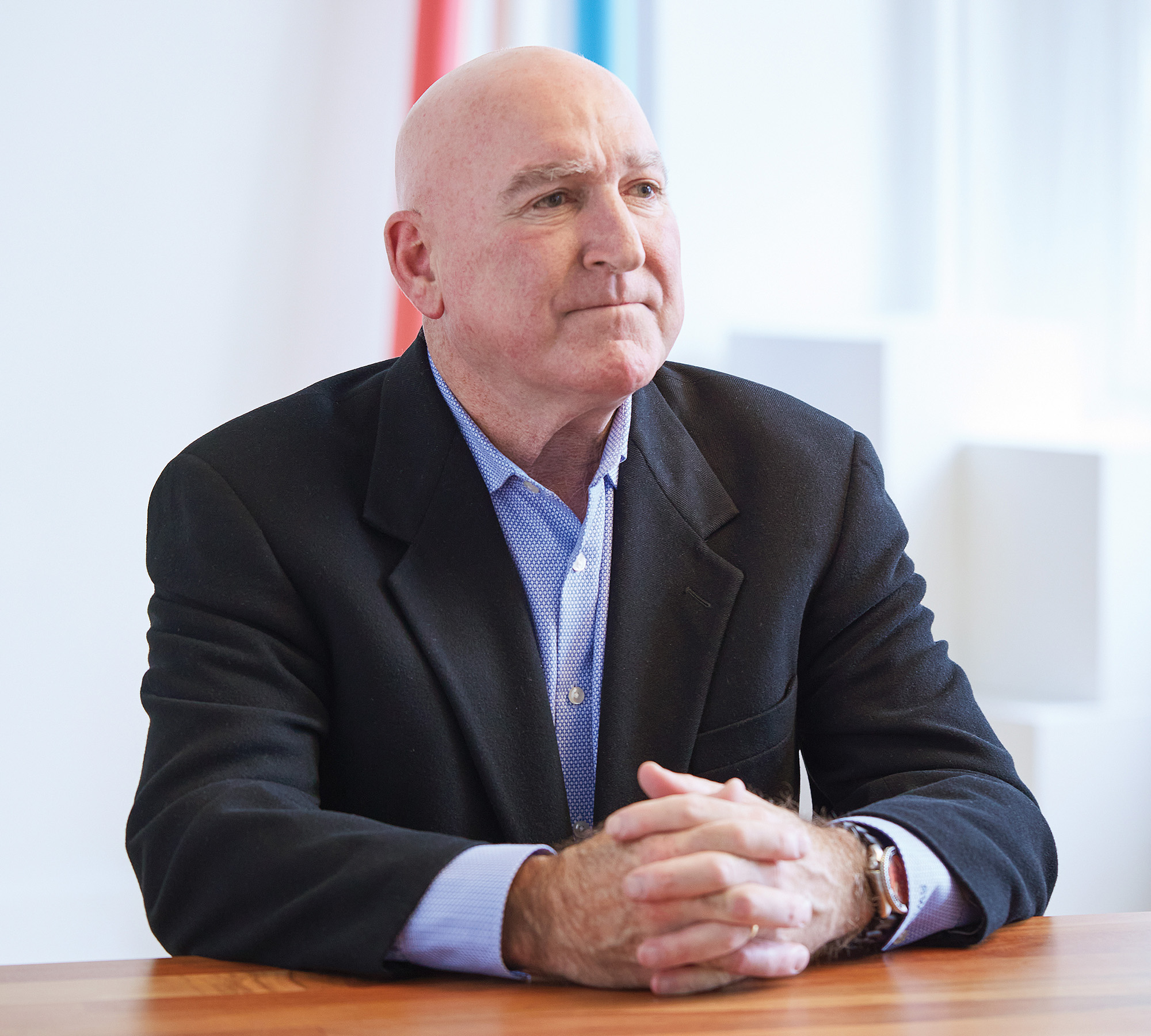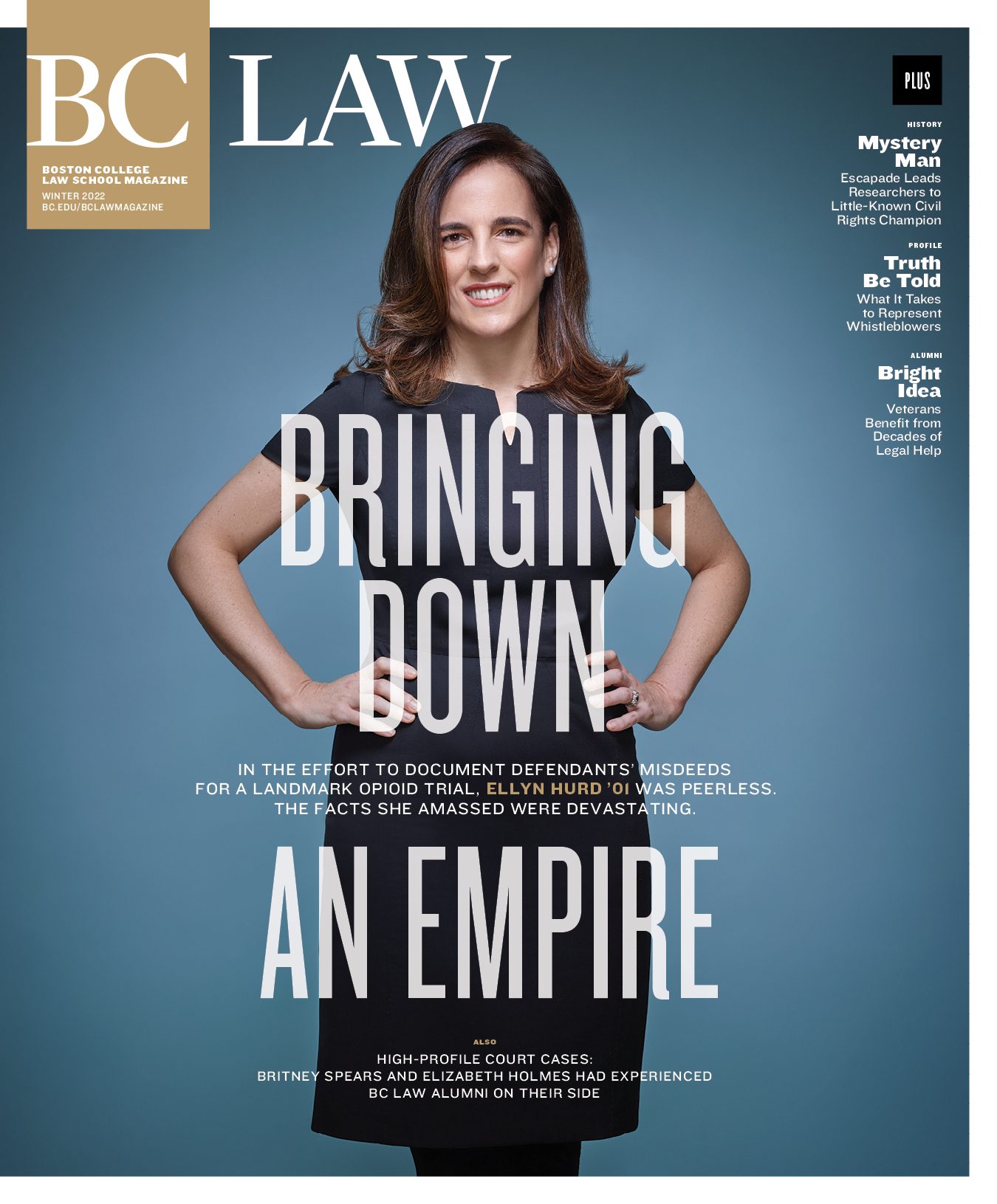Sean Mullaney was walking through downtown Boston during his first semester of law school, following streets familiar to Boston College students who’d taken them daily to internships, summer placements, nights out, or bar reviews. Rather than heading to an office building or pub, Mullaney ’93 walked to the front desk of the newly opened New England Shelter for Homeless Veterans (now the New England Center and Home for Veterans) and asked if there were any volunteer opportunities. Mullaney, an Army Airborne veteran, learned there was a critical need for legal aid but only one lawyer who regularly volunteered at the shelter. He took the problem back to his classmates, who helped launch the initiative that would grow into Veterans Legal Services, the largest legal aid organization for military veterans in the state, which recently celebrated its 30th anniversary.
“This was right after the Cold War,” Mullaney noted, “so there was a huge discharge of service members and a lot of young officers ended up in law school. We had a big military component in our class, and everybody was involved and confident that we could address [the legal aid shortfall]. We discovered that it was hard to get lawyers to do pro bono work for veterans due to the time commitments, but they were happy to supervise law students.” Mullaney and Manuel Duran ’93, a fellow Army veteran and West Point graduate, decided to take advantage of the Massachusetts student practice rule (SJC Rule 3:03), and built a model where law students, sponsored by attorneys and supported by BC Law, would run pop-up clinics at the shelter for veterans.
“We drafted bylaws and a charter, got non-profit status, and brought in Professor Richard Huber [an Annapolis graduate and former Dean of BC Law] as a faculty advisor that semester,” Mullaney recounted. “Every Wednesday night we’d drive down to the shelter and interview the veterans so we could triage their legal issues. If it was something that had to go to court, we’d link them up with an attorney, but a lot of it was helping navigate the daunting bureaucracy to get veterans benefits, or giving veterans the resources to tackle legal problems or mishaps in their lives and get them back to normal. If someone was evicted, or wrongfully fired and owed back pay, it made a huge difference for them to be able to say they were working with an attorney and BC Law.”
“Every Wednesday night we’d drive down to the shelter and interview the veterans so we could triage their legal issues.”
Sean Mullaney ’93
As their graduation neared, Mullaney and his classmates focused on building a permanent organization, and secured a grant from the Boston Bar Association to bring on a salaried executive director. Veterans Legal Services continued to operate from BC Law for two decades, bringing in volunteers from other area law schools and more licensed attorneys, but the 2008 recession hit the legal aid community hard as IOLTA (Interest on Lawyers’ Trust Accounts) funding and grants dried up.
Today, Chief of Operations Sarah Roxburgh and Chief Counsel Anna Richardson serve as co-directors of VLS, but the organization barely resembles the one they joined in 2008, when VLS was reduced to three employees working out of a cramped campus office in Stuart Hall. “We were barely getting by, and then our executive director was laid off in 2010,” Roxburgh said. “We didn’t know how we were going to continue, but there was almost no legal aid help for veterans other than this organization.”
Richardson, who had helped a Marine Corps veteran secure wrongfully denied retirement and disability benefits while studying law at another school, understood the critical gap VLS filled. “We didn’t have a choice but to make it work and make it awesome,” she said.
Following in the footsteps of Mullaney, Duran, and their classmates, BC Law students again answered the call. “From 2010 to 2015 we had hundreds of students volunteer,” Roxburgh said. “Not only were they doing legal aid work, but we were basically running a non-profit, a small business, and four legal aid clinics at shelters. Students helped us maintain relationships or build new ones to leverage every possible resource. We had one student veteran who cold called every attorney in Boston who’d served in the military to help us get volunteers and funding, and that’s how we found our next board chairman, Tim McLaughlin ’09, who served from 2011 to 2017.”
That effort led to a broader range of fundraising and support from bar associations, non-profit support groups, law firms, and corporate sponsors, which helped VLS grow from Roxburgh and Richardson sharing a cinderblock room on the Newton campus into the largest veterans’ legal aid group in the state. Today, VLS operates out of a downtown Boston office but still follows the original clinic model of meeting clients in pop-up clinics at shelters, VA hospitals, and soldiers’ homes, and has expanded across the state with virtual outreach.
“We serve about 650 veterans in the state every year,” Communications Director Jeff Lemberg noted, “and we have a strategic plan to get that up to 1,400 veterans within five years. We’re not based on the BC campus anymore, but I think the school’s cultural ethos still lives on.”
BC Law’s cultural ethos—and Mullaney’s influence on it—does live on. In the early 2000s, under the leadership of founding president David Delaney ’03, the BC Law Veterans Association student group was established on campus, its goals closely aligned with those of the VLS. Furthermore, in a University-level step toward helping student veterans themselves, BC is participating in a new pilot within its Yellow Ribbon Program. All financial aid that BC provides to law student veterans is fully matched by the Department of Veterans Affairs.
Many years after Mullaney’s walk downtown he still sits on the advisory committee of a thriving VLS, but downplays his outsized role in the mission. “The ongoing commitment to the veterans’ community is what I’m most proud of,” Mullaney said, “but we just had the kernel of an idea…a lot of great people did it.”
Former Lieutenant Brendan McKinnon served in the United States Coast Guard. He has published numerous articles in BC Law Magazine.



